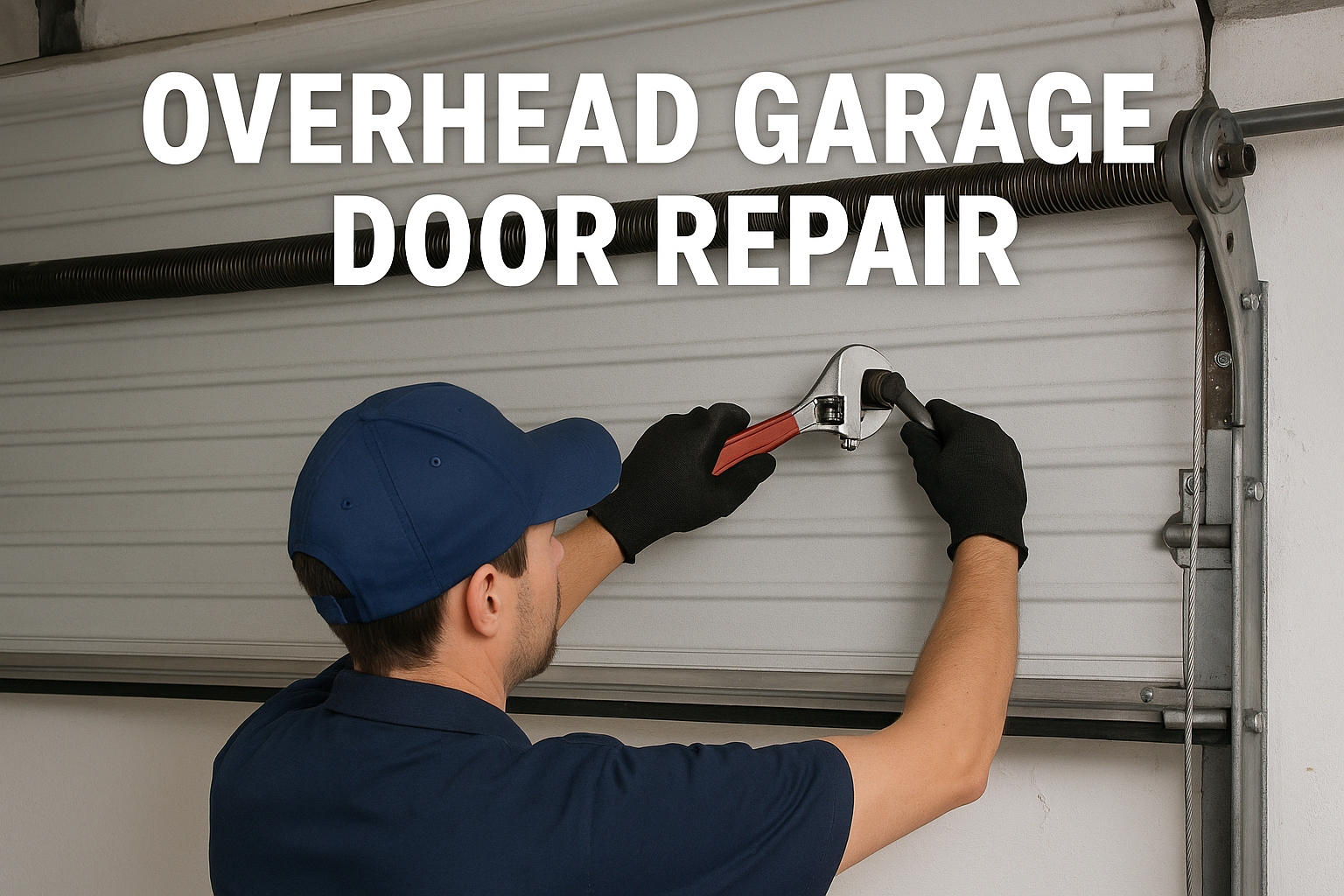
How Can You Tell When Your Overhead Garage Door Needs Repair in Lewisville?
If you’ve ever tried to leave for work in a hurry and your garage door refused to budge, you know just how much of a headache it can be. Most of the time, we hardly give a second thought to our garage doors—until they start acting up. But like any mechanical thing in your home, your overhead garage door can show hints that something’s wrong long before it grinds to a halt. Knowing what to look for can help you dodge bigger hassles down the road. So, let’s break down the telltale signs that your overhead garage door is crying out for some attention, especially if you live around Lewisville and want to avoid a garage door meltdown. And yes, we’re talking all things Overhead Garage Door Repair.
Unusual Noises: More Than Just a Creaky Door
You know your garage door’s normal soundtrack—the faint hum of the motor, maybe a soft click or two. But what about when it starts screeching, rattling, or thudding? These weird sounds are often your first clue that something isn’t right. If you notice the door groaning or making a grinding noise every time it goes up or down, it might be a sign that the rollers need lubrication, the springs are wearing out, or the tracks are misaligned. Ignoring those noises can turn a small fix into a major headache, so don’t brush them off as “just getting older.”
Movement Troubles: When Your Door Decides to Misbehave
A well-functioning garage door should glide smoothly and respond quickly to your remote or wall button. If you find your door jerking, getting stuck halfway, or refusing to open or close evenly, it’s waving a big red flag. Maybe it moves in a lopsided way, or it hesitates before obeying your command. These problems could come from worn cables, a faulty opener, or even something as simple as a dirty track. Don’t wait until it stops working altogether—catching these issues early means you’ll save yourself time and stress.
Visible Wear and Tear: What Your Eyes Can Spot
Sometimes, you don’t even need to listen or operate the door to spot trouble. Take a close look every now and then at your garage door’s parts. If you notice frayed cables, bent tracks, sagging panels, or rusty springs, it’s definitely time to call in the pros. Even small dents or cracks in the door itself can lead to bigger problems—like letting in water, pests, or messing with the door’s balance. A quick visual check every month or so can catch potential issues before they grow out of control.
Unexpected Movements: When Safety Becomes a Concern
Garage doors have built-in safety features, like sensors that stop the door if something is in its path. If you notice the door closing and then suddenly reversing for no reason, or if it doesn’t stop when there’s an object underneath, the sensors might be dirty, misaligned, or malfunctioning. This isn’t just annoying—it can actually be dangerous, especially if you have kids or pets. Don’t try to fix the sensors yourself unless you know exactly what you’re doing; safety issues are best left to the experts.
“When your garage door starts acting up, it’s like your house sending you a little SOS. Listen to those hints—it’ll save you from bigger headaches later.”
Quick Reference Table: Signs Your Garage Door Needs Repair
| Sign | What It Might Mean | What To Do |
|---|---|---|
| Loud or strange noises | Worn rollers, loose hardware, lack of lubrication | Apply lubricant or call a technician |
| Jerky or uneven movement | Track issues, cable problems, opener glitches | Inspect tracks, call for repair |
| Visible damage (rust, fraying, dents) | Worn components, weather damage | Replace damaged parts |
| Doesn’t open/close properly | Sensor misalignment, spring failure | Check sensors, get professional help |
| Door reverses unexpectedly | Sensor issue, obstruction in path | Clean/align sensors, remove obstacles |
FAQs: Overhead Garage Door Repair in Lewisville
Q1: How often should I check my garage door for issues?
A: It’s smart to do a quick lookover every month—listen for odd noises, watch how it moves, and check for any visible damage.
Q2: Can I fix small problems myself, or should I always call a pro?
A: You can handle simple stuff, like lubricating squeaky parts or cleaning the sensors. But for anything involving springs, cables, or electrical parts, it’s safer to call someone who knows garage doors inside and out.
Q3: What’s the most common repair for overhead garage doors?
A: Replacing worn-out springs and fixing misaligned tracks are pretty common. Both can cause your door to work poorly or even get stuck.
Q4: How long does overhead garage door repair usually take?
A: Most repairs take less than a couple of hours, especially if you catch the problem early. More complicated issues might take longer, but the pros can usually get you back up and running quickly.
Wrapping It Up:
If your overhead garage door in Lewisville has been acting a little strange lately, don’t wait for a complete breakdown before you take action. Paying attention to odd sounds, weird movements, and visible wear can help you catch problems early and avoid bigger (and more expensive) headaches. And if you’re ever unsure, there’s no harm in reaching out to a local expert for some honest advice. Your garage door does more than just keep your car safe—it keeps your whole home running smoothly. Stay alert, listen for those little warning signs, and you’ll keep your overhead garage door rolling along for years to come.
Read More: Lewisville Garage door repair
